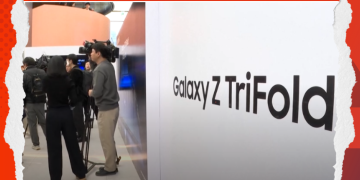In a world where digital security is paramount, a storm is brewing. A whistleblower claims that the US government has developed a secret quantum computer named “Miya”, capable of breaking modern encryption in minutes. If true, this revelation threatens the very fabric of online security, financial systems, and personal privacy. As the news unfolds, the spotlight shifts to President-elect Donald Trump’s key appointments — David Sacks and Kash Patel — both vocal advocates on X (formerly Twitter) for free speech and against government overreach.
Will Sacks and Kash respond to this potential breach of privacy, or could the power of quantum computing tempt even the staunchest defenders of liberty into supporting tighter controls?
Quantum Supremacy and the Miya Allegations
While Google recently announced its quantum breakthrough with the chip “Willow”, capable of solving calculations that would take supercomputers billions of years, the whistleblower suggests that Miya leaves Willow in the dust. Miya allegedly executes Shor’s algorithm, a quantum computation capable of breaking widely used encryption methods like RSA and ECC.
If Miya is real, everything from passwords, bank accounts, private communications, to military secrets could be laid bare. The whistleblower warns that “The entire internet is at risk!”
The Whistleblower: Hero or Fearmonger?
The whistleblower, who identifies as a government technologist, claims he can no longer keep this secret under wraps. He warns that Miya is on the verge of operational capability, suggesting that encryption as we know it is already obsolete.
He dives deeper, mentioning a “scrubbed” individual named Krishna Okhandiar, allegedly linked to Miya’s development. The message is clear: someone has to stop this unchecked power before it’s too late. But is this a genuine warning, or a well-orchestrated fear campaign?
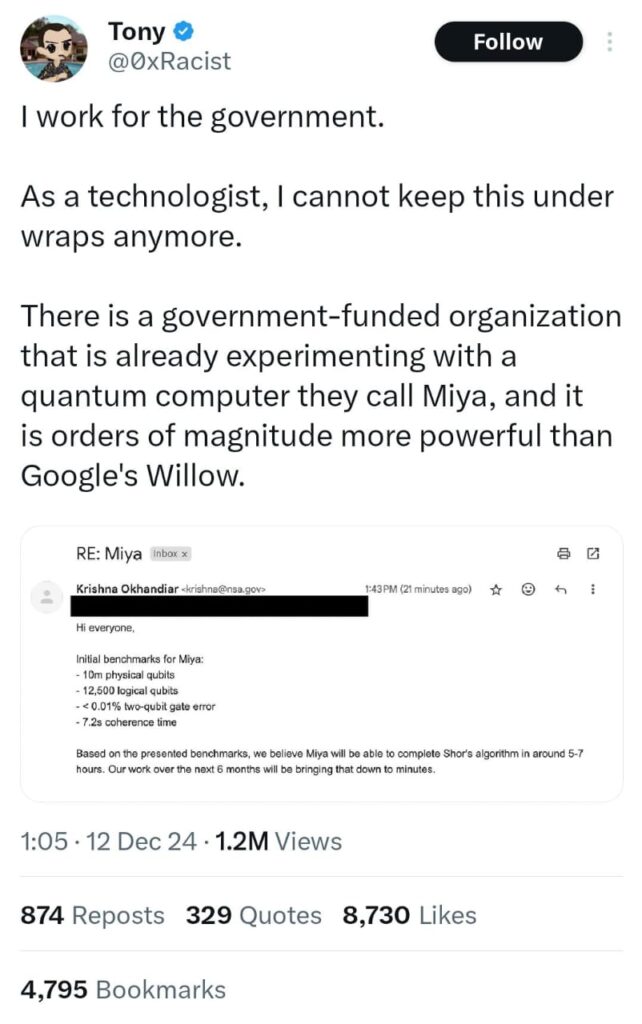
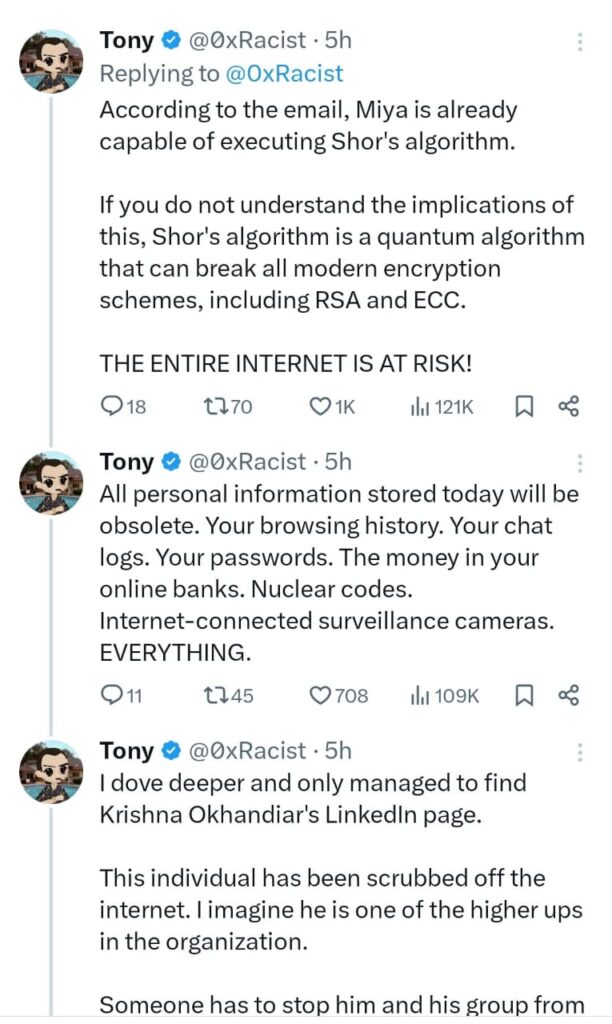
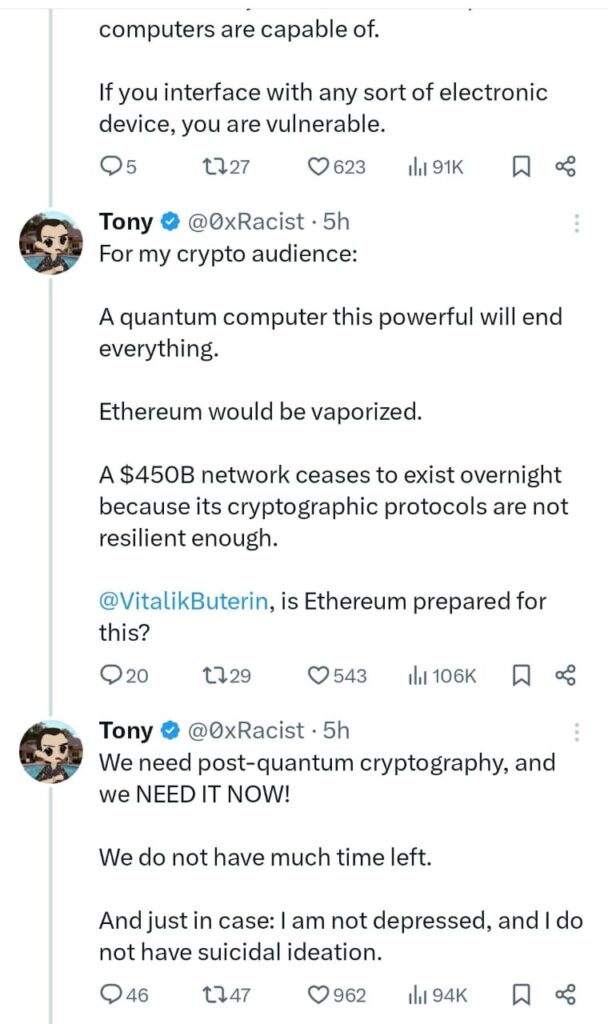
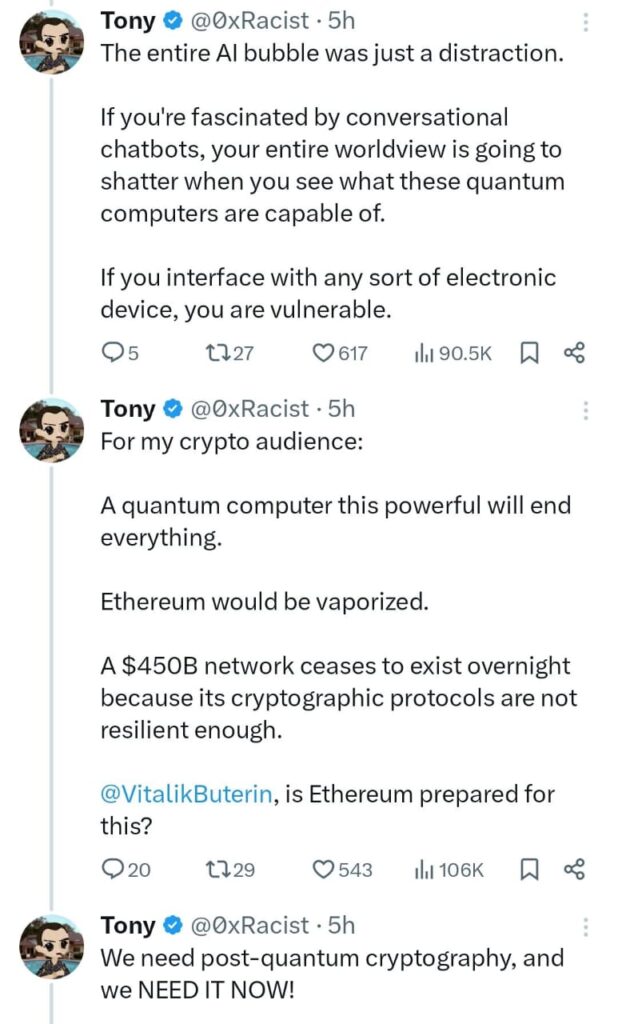
Why Does This Matter to You?
If Miya exists, its implications are terrifyingly personal. Consider the potential fallout:
- Passwords and Financial Security: Every password-protected account could be cracked open.
- Cryptocurrencies: Ethereum, valued at over $450 billion, could be destroyed overnight if its cryptographic backbone fails.
- Surveillance and Privacy: Internet-connected devices — cameras, smart home systems, medical records — could all be exposed.
The whistleblower emphasizes that we need post-quantum cryptography, and we need it now. The clock is ticking, and the race between quantum innovation and encryption security is reaching a critical juncture.
David Sacks: Free Speech and Crypto Defense
David Sacks, known for his outspoken views on X, champions free speech, decentralized systems, and limited government intervention. As the potential head of Trump’s crypto and AI policy, Sacks’ perspective is crucial. If quantum computing threatens to dismantle blockchain networks and cryptocurrencies, Sacks faces a paradox: defending digital assets from both quantum threats and potential government exploitation.
If Miya exists, it could undermine the very decentralized finance (DeFi) systems that Sacks believes protect individual liberty. Will he prioritize immediate security measures, or will he resist government overreaches even at the risk of chaos in the crypto world?
Kash Patel: Privacy and Surveillance Concerns
Meanwhile, Kash Patel, Trump’s likely pick to lead the FBI, has built a reputation on X for calling out government surveillance overreach and defending personal freedoms. If Miya’s capabilities are real, Patel faces a monumental challenge. Quantum computing could offer the government unprecedented power to decrypt data, monitor citizens, and access private communications.
How will Patel balance his aversion to government overreach with the need to protect national security? Could the temptation of wielding quantum power lead to a surveillance state, or will Patel fight to ensure that such technology doesn’t infringe on civil liberties?
The Stakes: Freedom vs. Security
This potential quantum threat ignites a conversation that resonates with Sacks’ and Patel’s core beliefs. Both have criticized government overreach and championed privacy rights. But with the power to decrypt everything — from financial networks to personal chats — the line between security and freedom blurs.
If Miya exists and the government possesses this quantum power, it could dismantle the very foundations of internet privacy. Sacks and Patel will need to decide:
Will they fight to keep quantum capabilities in check to protect personal freedoms?
Or will they support leveraging Miya to maintain national security at the cost of individual privacy?
The Future: A Quantum Crossroads
The allegations of Miya’s existence, combined with Google’s recent quantum breakthrough, signify that quantum supremacy is no longer science fiction — it’s knocking at our digital door.
Trump’s appointments of David Sacks and Kash Patel suggest a strong stance on personal freedom and against government overreach. But the allure of quantum power may force even these defenders of liberty to rethink their principles.
One thing is certain: if Miya is real, the future of digital freedom, cryptocurrency, and national security lies in the hands of Sacks, Patel, and the rest of Trump’s team. How they respond could shape the next era of technological and civil rights.



